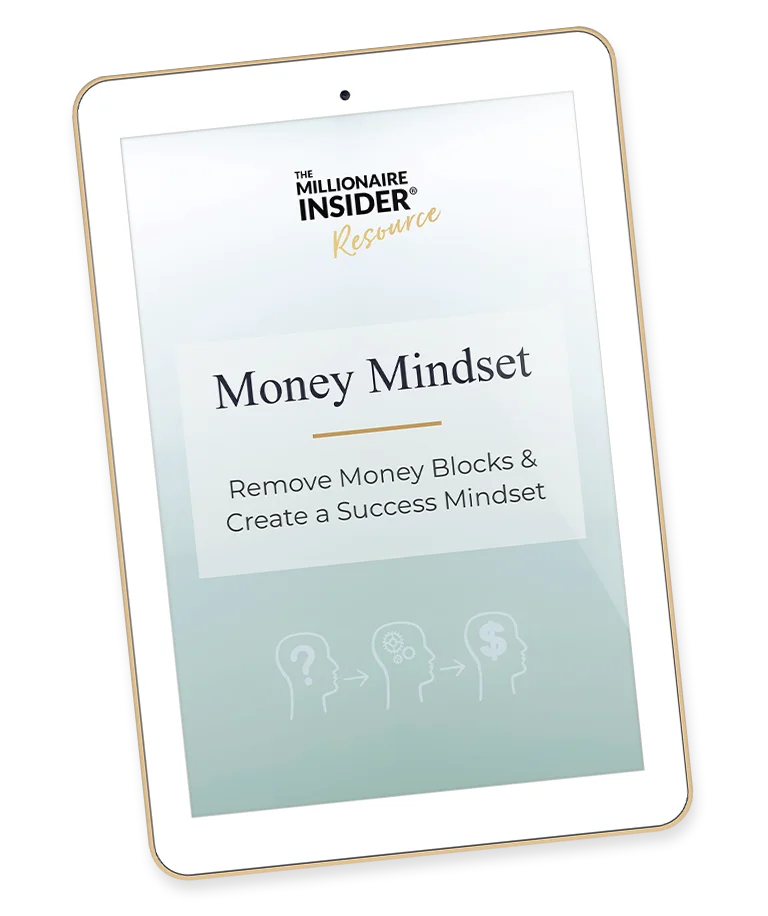Introduction to Emotional Investing and How It Impacts Your Financial Future
Investing can be a powerful tool for building wealth and securing your financial future. However, one of the biggest obstacles that investors face is their own emotions. Emotional investing can lead to impulsive decisions, significant losses, and missed opportunities.
In this article, we will explore the dangers of emotional investing and provide a comprehensive guide on how to avoid falling into this common trap.
Disclosure
All materials and intellectual property are copyrighted by MillionaireSeries.com®.
This information is for educational purposes only. It is not intended to replace any advisor or specialist or provide any investment, financial, tax, retirement, planning, or healthcare advice.
By reading this, you agree to hold MillionaireSeries.com® and its affiliates harmless for results achieved or not achieved.
Understanding Emotional Investing
Emotional investing occurs when individuals make financial decisions based on their feelings rather than rational analysis. It often stems from fear, greed, overconfidence, and other emotional responses to market fluctuations or other inputs they receive.
Some common results of emotional investing include panic selling during market downturns, chasing hot trends, and holding onto losing investments.
The Consequences of Emotional Investing
Emotional investing can have detrimental  consequences on your financial well-being. Here are some of the key drawbacks:
consequences on your financial well-being. Here are some of the key drawbacks:
Losses
Emotional investors are more likely to buy high and sell low, leading to significant losses over time.
Emotional decisions can result in selling investments at the worst possible moment, locking in losses that could have been avoided with a rational strategy.
Missed Opportunities
Emotional investors often miss out on potential gains because they hesitate to enter the market when opportunities arise. They may wait for the “perfect” time, which rarely comes.
Increased Risk
Emotional investing can lead to an overconcentration of investments in a single asset or sector, increasing the overall risk of your portfolio.
Stress and Anxiety
Constantly reacting to market fluctuations can cause stress and anxiety, negatively affecting your overall well-being.
Poor Long-Term Performance
Emotional decisions can hinder your ability to stick to a long-term investment plan, which is crucial for building wealth over time.
How to Avoid Emotional Investing

Set Clear Financial Goals
The first step in avoiding emotional investing is to establish clear financial goals. Define your objectives, such as saving for retirement, buying a home, or funding your children’s education.
Having specific goals in mind will help you make rational decisions based on your long-term needs rather than short-term emotions.
Create a Diversified Portfolio
Diversification is a key strategy for mitigating risk and reducing the impact of emotional investing. Spread your investments across different asset classes, such as stocks, bonds, real estate, and cash equivalents. A well-diversified portfolio can help you weather market volatility more effectively.
Develop a Solid Investment Plan
A well-thought-out investment plan acts as a roadmap for your financial journey. It should include your asset allocation strategy, risk tolerance, and timeline for achieving your financial and investment goals. Stick to your plan and resist the urge to make impulsive changes when market conditions fluctuate.
It should include your asset allocation strategy, risk tolerance, and timeline for achieving your financial and investment goals. Stick to your plan and resist the urge to make impulsive changes when market conditions fluctuate.
Stay Informed
Knowledge is power when it comes to investing. Stay informed about the financial markets, economic trends, and performance of your investments. However, avoid over-consuming financial news, as excessive exposure can lead to emotional reactions.
Dollar-Cost Averaging
Dollar-cost averaging is an investment strategy that involves regularly contributing a fixed amount of money to your portfolio, regardless of market conditions. The strategy is that you can fewer shares when prices are high and buy more shares when prices are low. It smoothens out market volatility and reduces the impact of emotional decisions.
Avoid Timing the Market
Trying to time the market by predicting when to buy or sell based on short-term price movements is a common pitfall for emotional investors. Instead, follow on your investment plan and focus on your long-term goals.
Implement Stop-Loss Orders
To protect your investments from significant losses, consider using stop-loss orders. These orders automatically sell a security when its price falls to a predetermined level. Make sure you fully understand stop loss orders before implementing this strategy! It is important to hire a professional who understands them as your sell request may execute at a market price far below your stop loss price.
While stop-losses can help limit losses, be cautious of setting them too close to the current market price, as they can trigger unnecessary selling during short-term fluctuations.
Seek Professional Guidance
If you find it challenging to manage your emotions when investing, consider working with a financial advisor or investment professional. A registered investment advisor can provide advisory services and objective guidance and help you create a suitable investment strategy. They can also help you understand market cycles and make informed investment decisions.
consider working with a financial advisor or investment professional. A registered investment advisor can provide advisory services and objective guidance and help you create a suitable investment strategy. They can also help you understand market cycles and make informed investment decisions.
For example, should you invest in the stock market? Or, would you be better suited purchasing mutual funds?
They can also help you stay focused and on track.
Practice Patience
Investing is a long-term endeavor and it’s crucial to practice patience. Avoid the temptation to constantly check your portfolio or make frequent changes based on short-term market movements. Remember that markets have historically trended upward over time, and staying the course is often the best approach.
Embrace Your Emotions
Lastly, acknowledge your emotions without letting them control your decisions.
It’s natural to feel emotions (good and bad) during market fluctuations. Recognizing your emotions and their potential influence on your choices is the first step to avoiding emotional investing.
Conclusion – “How to Avoid Emotional Investing”

While there is no guarantee of future results, emotional investing can have dire consequences for your financial future.
With discipline and a well-structured approach, you can minimize its impact.
By setting clear goals, adhering to a solid investment plan, and implementing strategies like dollar-cost averaging and diversification, you can avoid making impulsive decisions.
Remember that investing is a marathon, not a sprint. Staying the course with a rational mindset is the key to long-term financial success.

